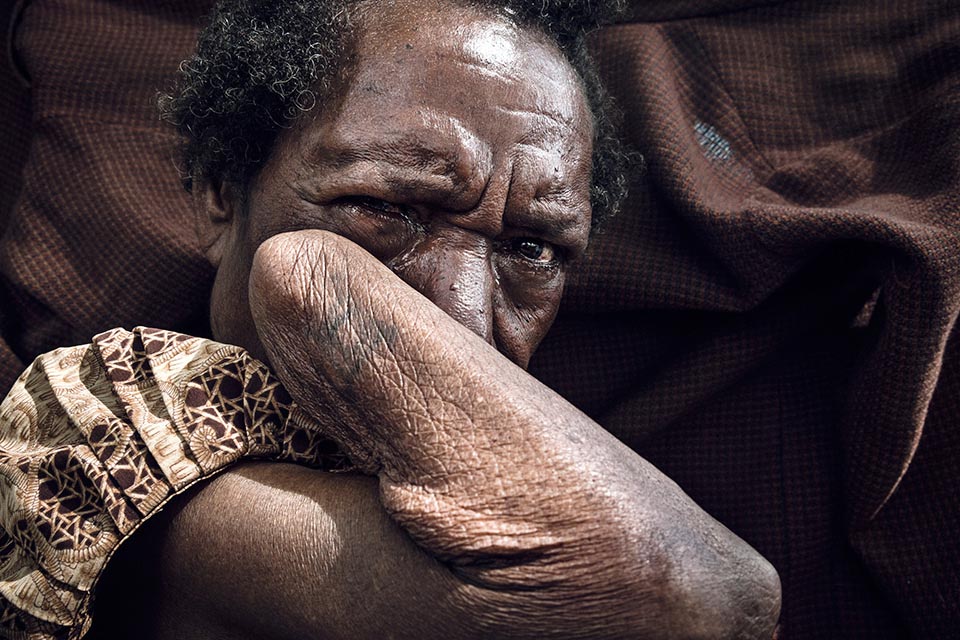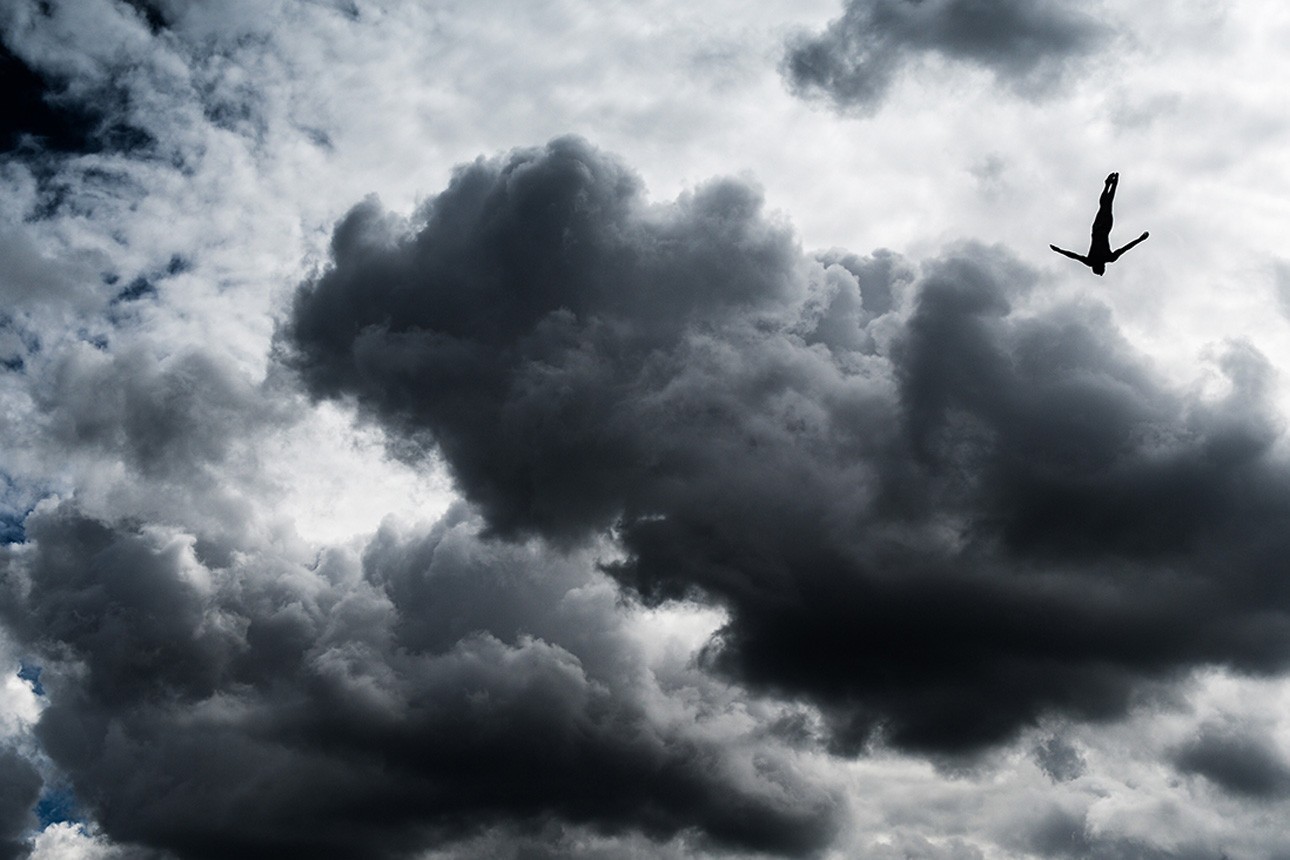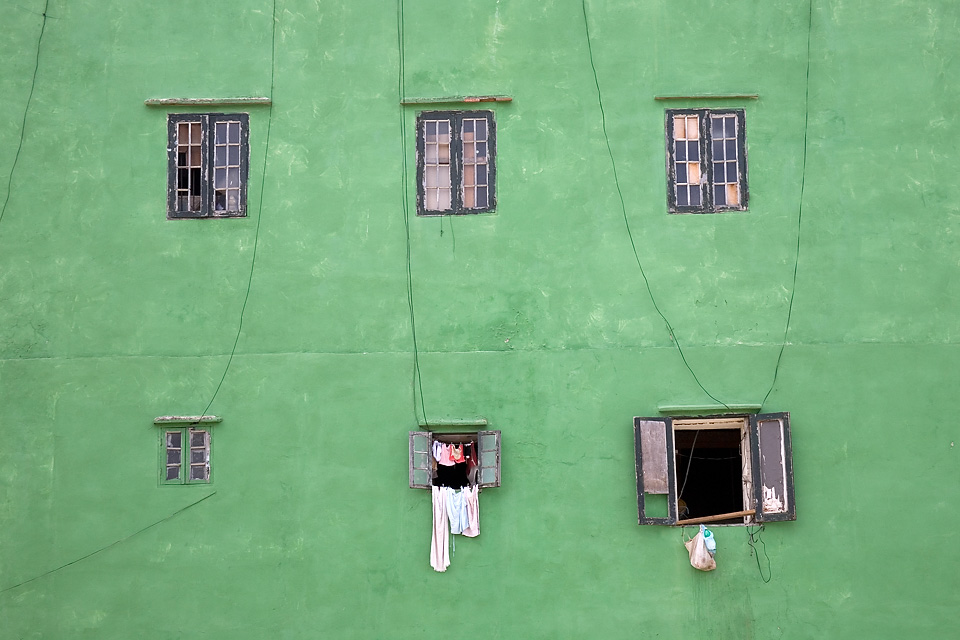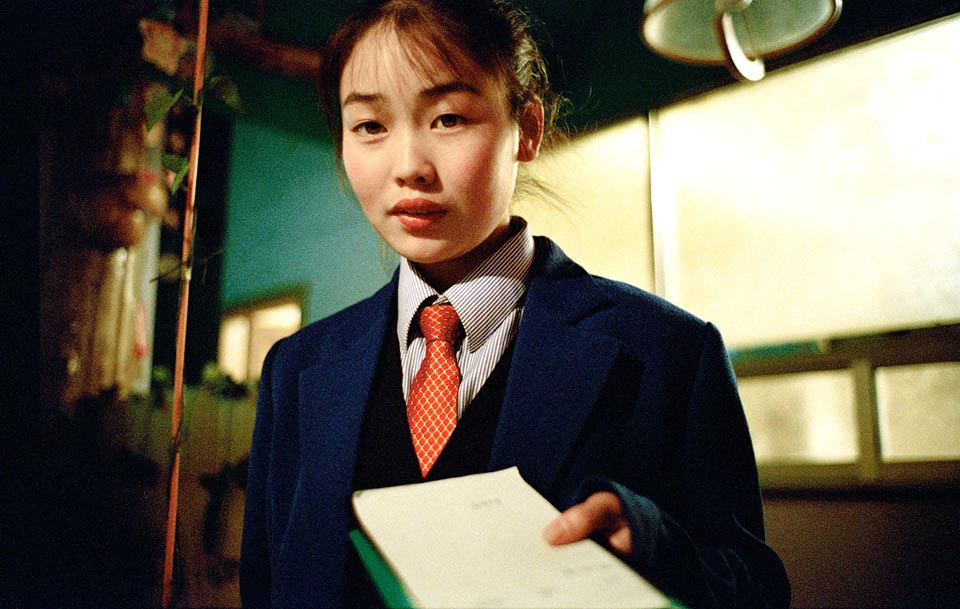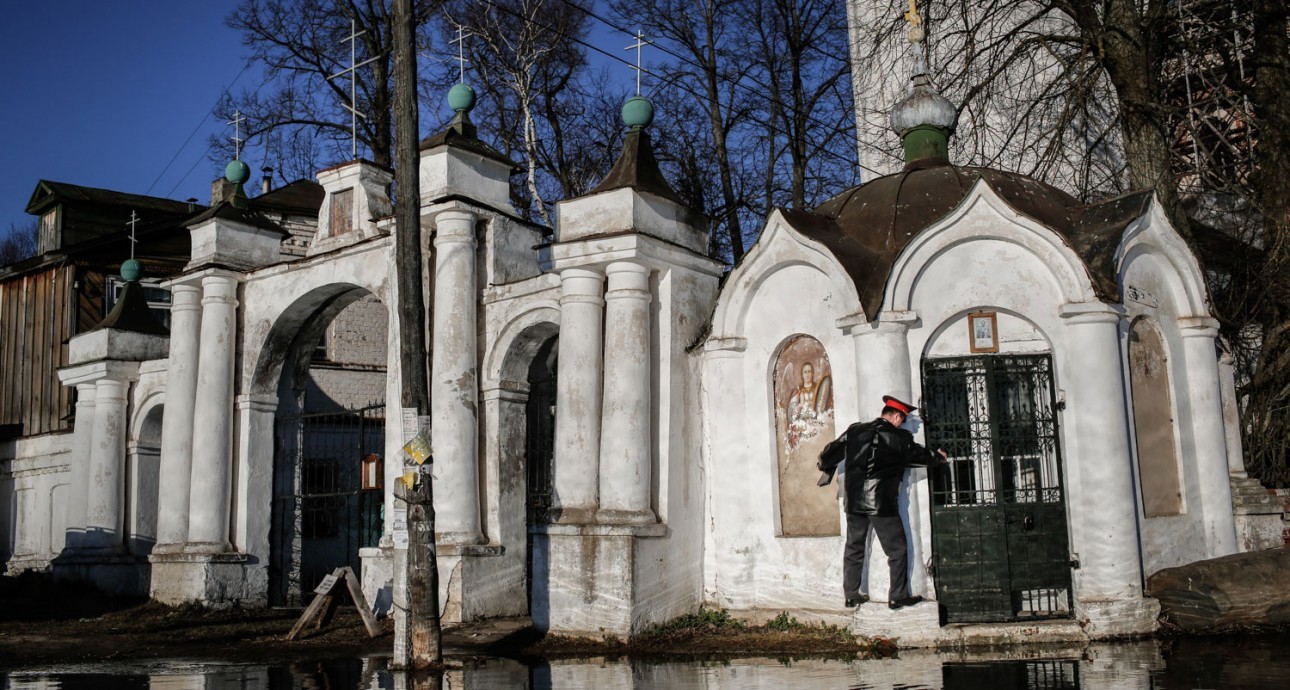
10 Favorite Photographs of Denis Sinyakov
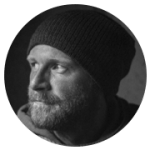
Photographer and videographer. Born in Obninsk city in Kaluga oblast in Russia, lives in Moscow. Graduated from Bauman Moscow State Technical University. Has been a staff photographer at AFP and Reuters for more than 10 years, and since 2012 has been a freelancer. Recently has been doing his own photo projects and working on documentaries. His works were published in Der Spiegel magazine, Helsingin Sanomat, on the websites of Meduza, CNN, Al Jazeera, GEO, Vokrug Sveta (Around the World) and others. His reports about a trip on the rivers in the north of Russia was broadcast on Dozhd (Rain) TV channel. Works for Redux, Cosmos and N-OST agencies, as well as the organizations Greenpeace and Sea Shepherd.
April 5, 2011. Afghanistan, Helmand province.
I was still working with Reuters at the time. I was assigned to Medevac. Our unit had four medical Apache helicopters and four Black Hawk helicopters, which were covering us. They gave me a walkie talkie, and a soon as I heard Medevac call sign, I had to get my stuff and jump to the medics in 30 seconds. In three minutes, the helicopters were up in the air.
At first, being an inquisitive photographer, I never missed a single flight, even the night ones, although it is difficult to take a decent photograph in the dark. But on my first night, I was lucky. Our helicopter delivered a wounded person to the field hospital, and the medic was going back wearing the night vision device. Usually the cover helicopter does not land, but circles around the location, but this time it was flying behind us, and his front projector created a beautiful show on on the hospital’s wall. I was on night flights several more times, but nothing like this happened again.
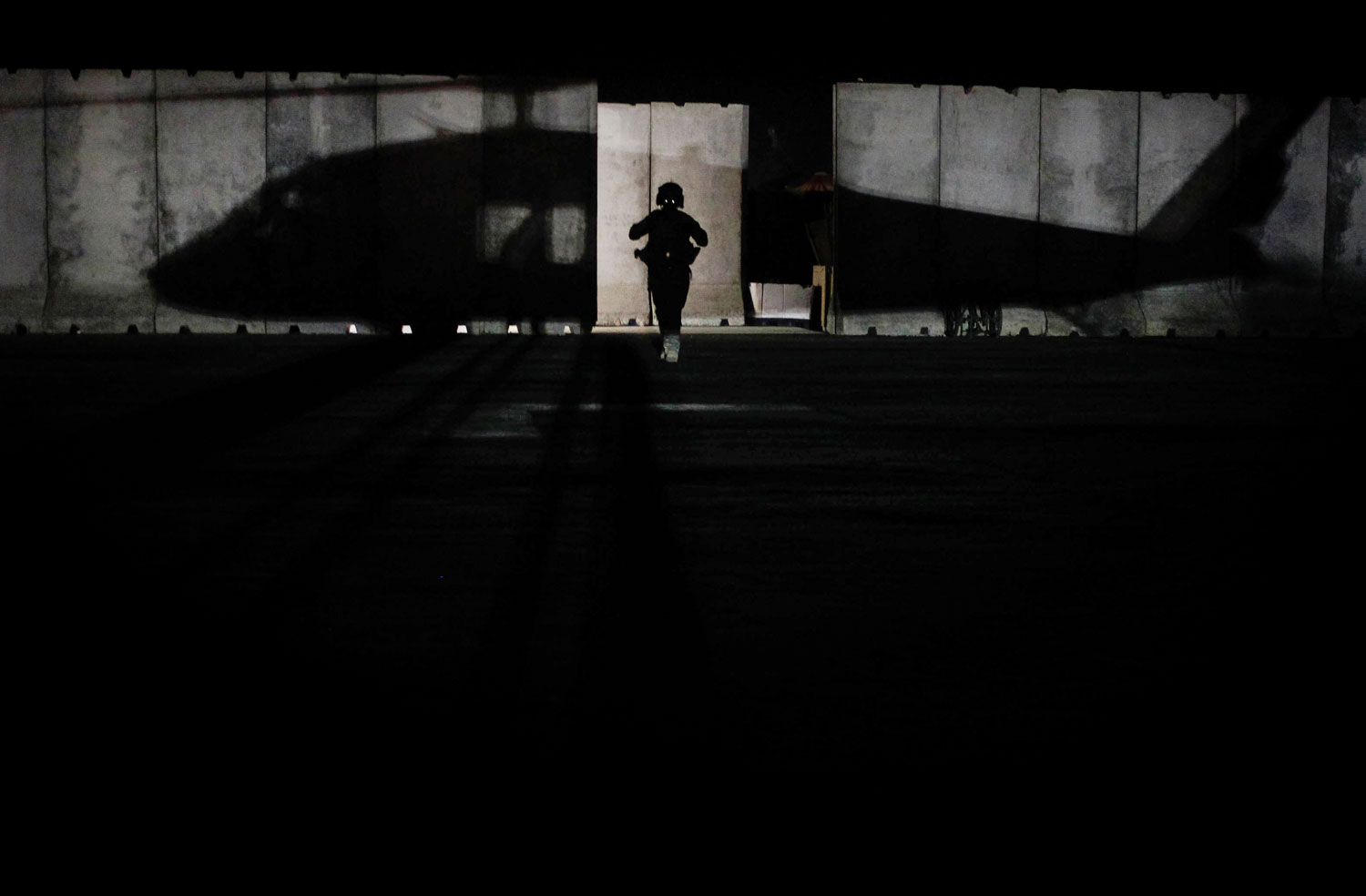
September 19, 2013. International waters of Barents Sea.
The FSB special forces storms the Greenpeace ship, Arctic Sunrise, after the protest at Prirazlomnaya platform, while Greenpeace activist Frank raises his hands to prevent the helicopter from landing on the deck. In several seconds almost all crew members will be on the deck to help him. And in five more days the Investigative Committee will accuse us all of piracy, a puppet court will send us to Murmansk pre-trial detention facility, and later in Kresty (pre-trial detention facility in St. Petersburg).
The assault lasted four minutes, I managed to take 99 photographs, before they put me face down on the cold deck and took my camera away.
The photographs were saved on two memory cards, and only after 20 months, when the Investigative Committee closed the case, they returned what was unlawfully confiscated. Or, to be exact, they only returned the second memory card, and the first one went to one yellow pro-Kremlin website, which a month after our arrest published personal photographs of crew members found on board and my photographs taken during the assault operation, but this photo was not among them. I was upset at the time, because I thought the photo must have not worked out, and in general I hoped to see the photos from this shoot at some point.
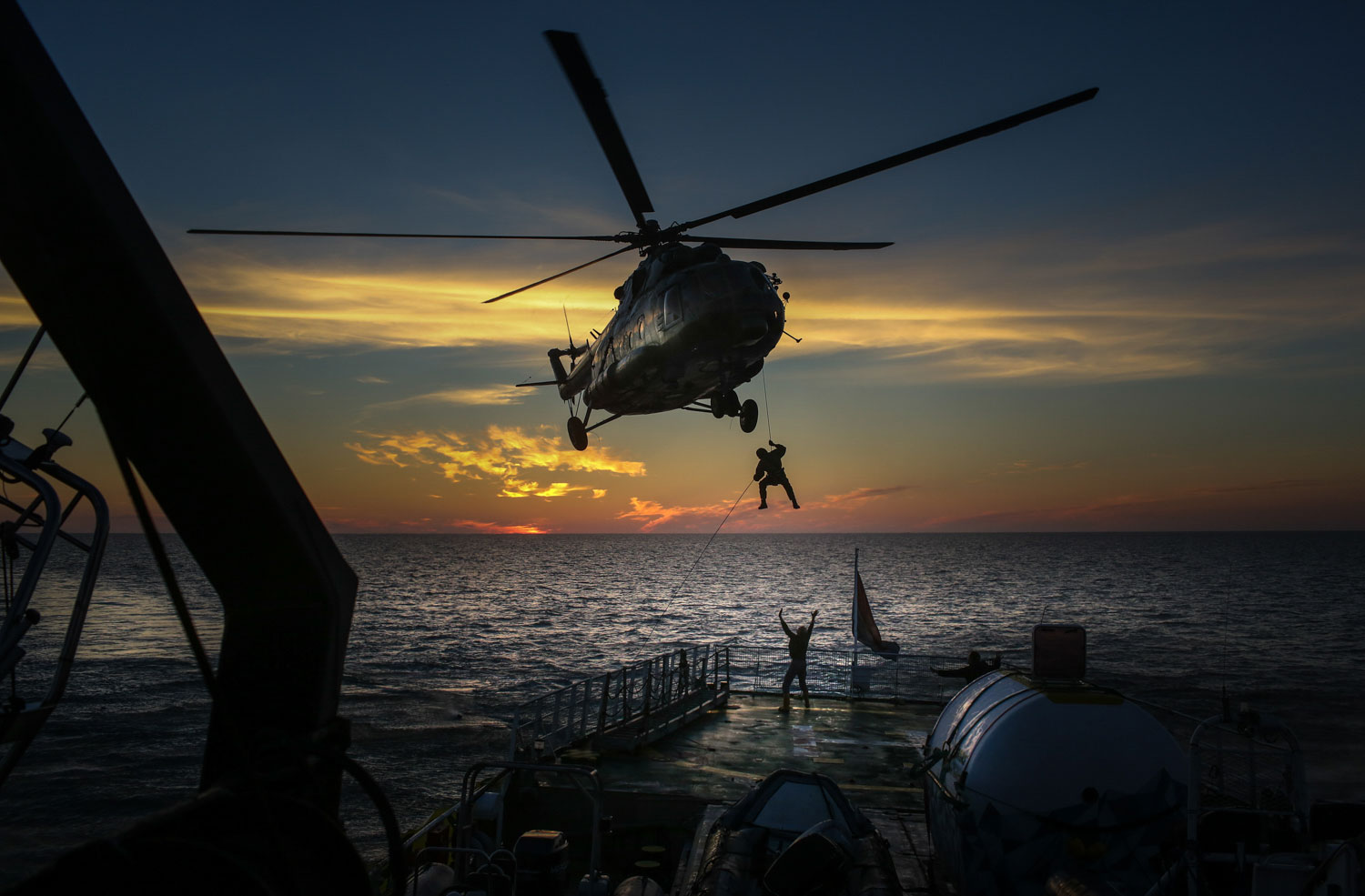
April 23, 2013. Another flood in Kholui village.
The village is almost annually flooded, and locals treat it as sort of an attraction. They organize boat crossings and invite tourists.
The water approached the only high place in the village — the church fence, and people took their boots off and tried to pass and not get their feet wet. Regular people passed and passed, and suddenly a district policeman turned up in his patent leather shoes. He came on a boat from somewhere else, and he wasn’t prepared.
This photograph is about patience. I like waiting, and I secretly envy those who can snap a masterpiece at random.
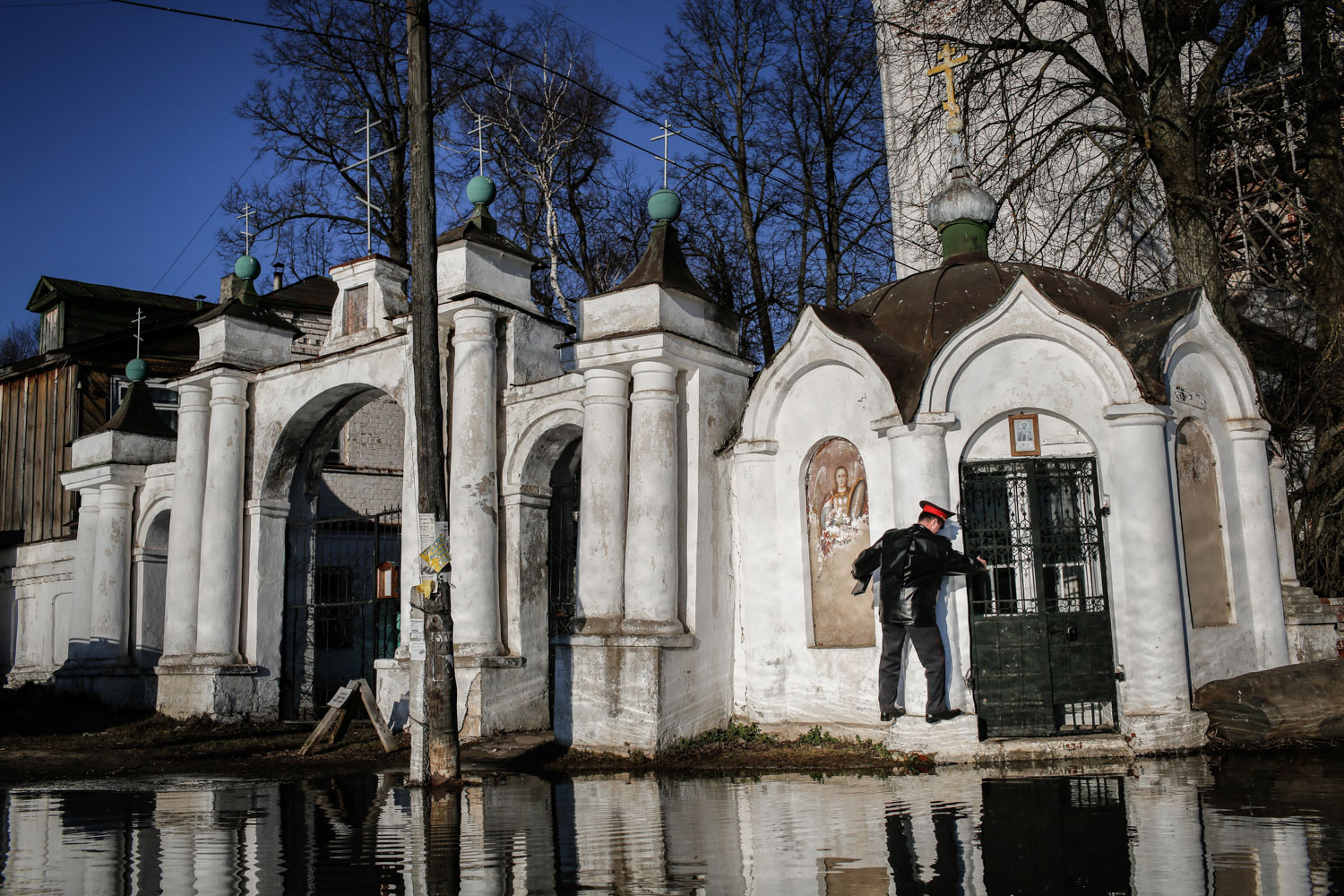
June 6, 2014. A swallow I scared is trying to go back to her nest, which she built in the abandoned village house near Vychegda river.
For the past two years I have been shooting a story about the lost river civilization in Russia. There used to be lively, rich villages along the rivers, and now they are gone, and the rivers are growing shallow.
Sometimes you walk into a house, and it feels as if the people just went out to get water. There are old photographs on the walls, postcards with congratulations on the cupboard, dishes on the table. As if they were decorations to some important movie, remnants of a lost culture, which will disappear for good in the coming years.
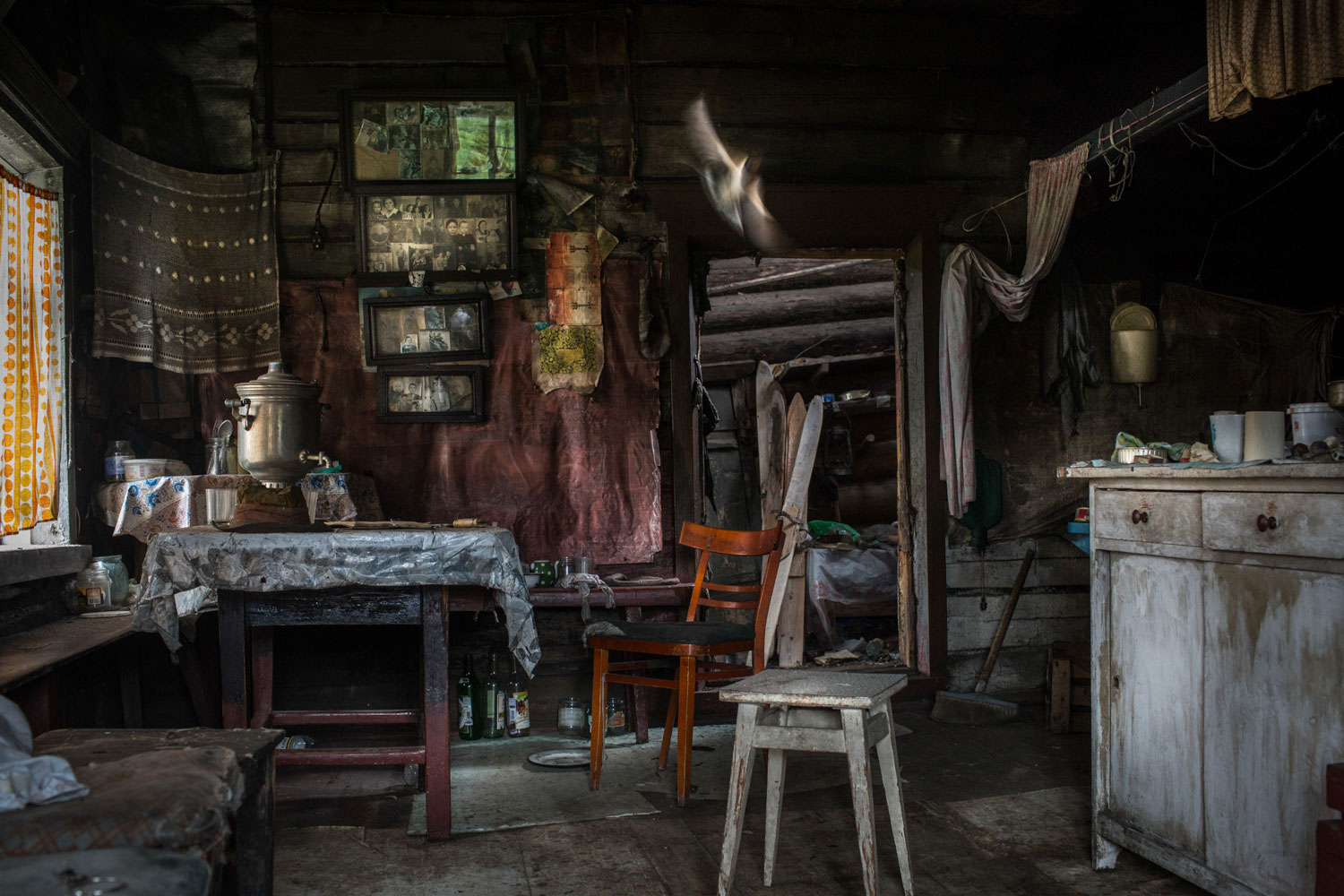
April 4, 2010. Borovsk, Kaluga oblast. A night Easter service in the church built in the 16th century.
When I was little, my grandma would sometimes take me to the Easter service with her, and all I wanted was to sleep — after all, it was nighttime — but everybody was standing still. In this church they let children nap on the floor, and the children asked to wake them up when the Easter bread and eggs were consecrated.This was a group of very devout and sincere believers. Everything was for real, and I found this place rather accidentally.
For many years before that I shot big church holidays in Chorny Ostrov monastery in Maloyaroslavets, I talked to the sisters who were bringing up orphan girls there. I grew fond of that place. And then the monastery was renovated, it became rich. Putin came twice and shared a meal with those girls. Every year it was more difficult to get there, despite my acquaintance with the Mother Superior.
Finally, one time it turned out that you can participate in the Easter service only if you have an invitation.
There was a queue of donors at the gate, the parking lot was full of expensive cars. I just turned around and went to Borovsk, my other favorite city, and ended up in this church right by midnight. I am agnostic, but if there is a God, this is where he should be.
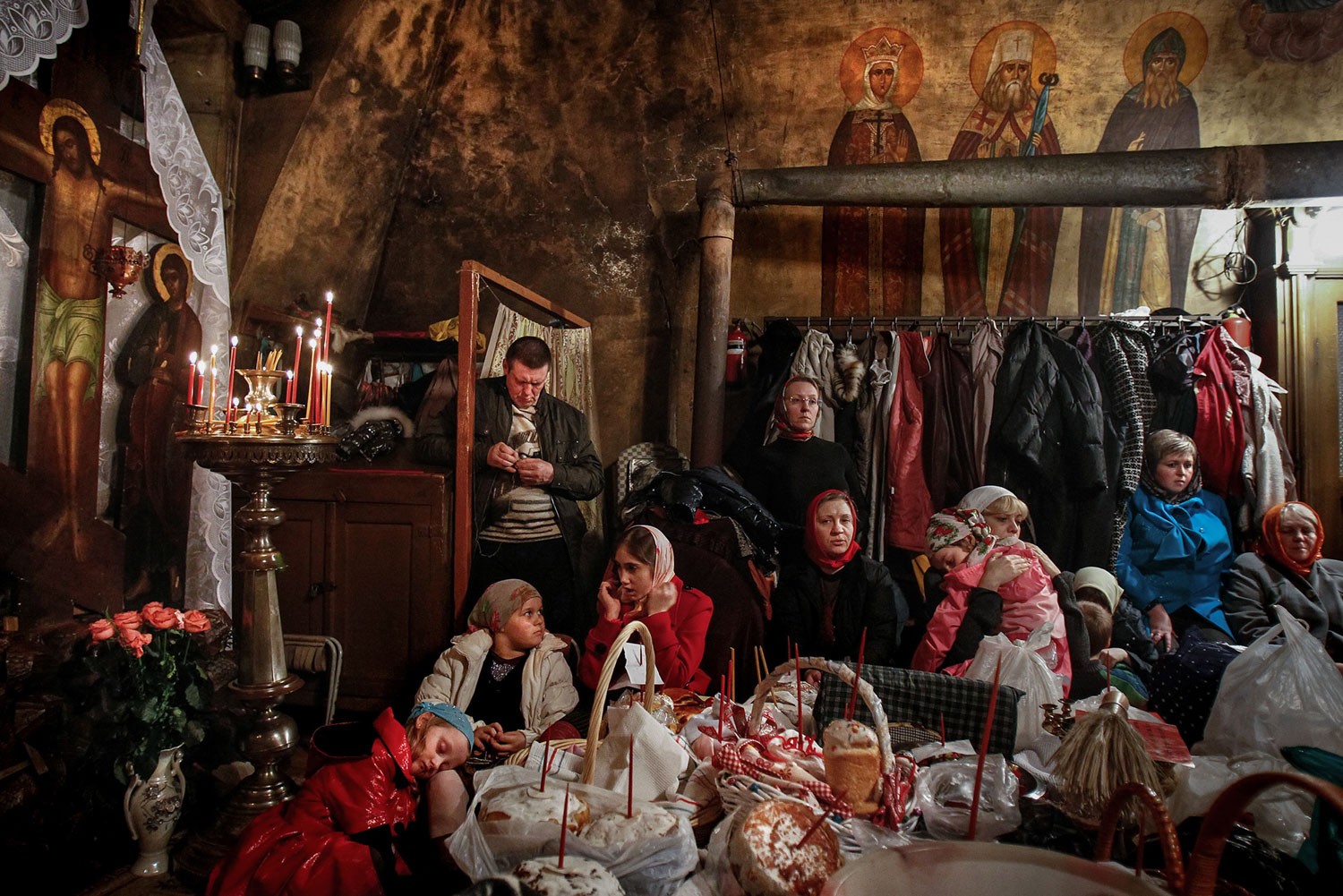
January 7, 2009. A Christmas service at the village church in the Carpathians.
I really wanted to include a photo from Ukraine and use this opportunity to send my warmest greetings to Ukrainians.
I love Ukraine, the Carpathians in particular. I came there several years in a row to shoot Christmas carols, and every time I was amazed at how strong the tradition is, and that it exists not only for numerous tourists. It is just the way they lived, and the way they still live. Gutsul men walk from house to house with their songs, collect donations, and the report about how this money is spent is posted on the church gate.
If I could, I would cut out the past two years of sickness and madness of my country, and would again go back to 2009, to the house of a large Ukrainian family, who did not start eating their holiday meal without you.
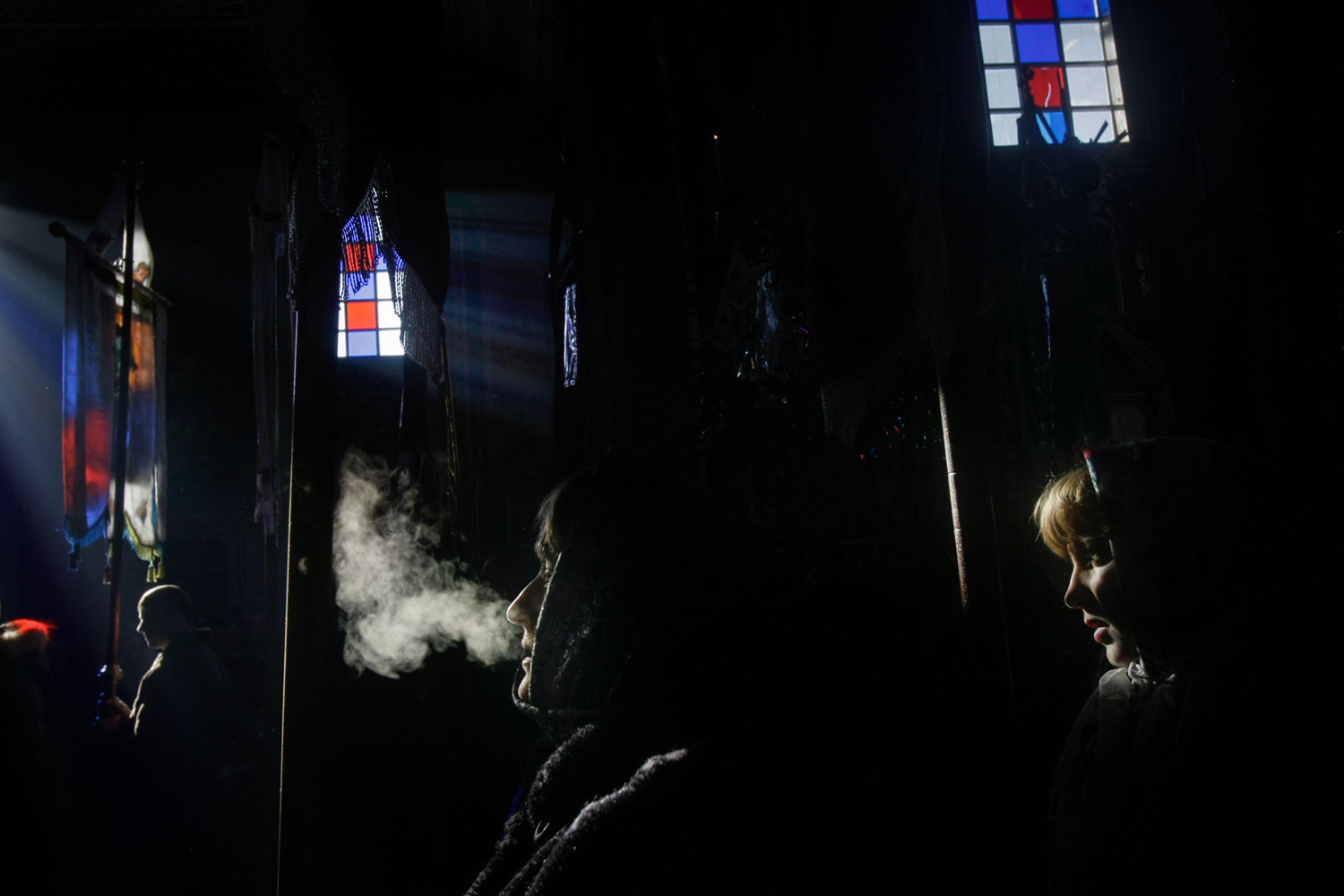
February 23, 2013. Uzbek cafe in the North part of Moscow.
There are a lot of these cafes in the suburbs. The migrants from Central Asia gathered to celebrate Defender of the Fatherland Day. There were many people in the cafe, from regular workers from Mytishchi fair to their bosses. People’s Artist of Uzbekistan Farishta and two female dancers. The artists earned quite a lot — as the guests got more drunk, they were tipping with bigger and bigger notes.
Until this moment — and I have been shooting migrants in Russia for a long time — I was sure that they tried to send almost everything they earned to their home countries.
But then I was standing with my mouth open and trying to predict when they would kick me out. The bosses and the big muscular guys were visibly not happy about my being there, but Farishta let everyone understand that I was with her — originally I had an assignment to make a family portrait of her and her keyboard man Khurshed for Ogonyok magazine.
The young woman came with her mother. During the breaks, the mother took away all the money and poured her a shot of vodka, hiding the bottle under the table — not to buy it in the cafe, as it was more expensive there. I was shooting and I tried to read the minds of the girls. I was almost sure they were thinking about who they could have been and what stages they could have performed on, if they had been a bit more lucky in life.
This photograph reminds me of Almodovar movies. Or rather, the older woman reminds me of one of his female characters. The movie is All About My Mother, if I am not mistaken.
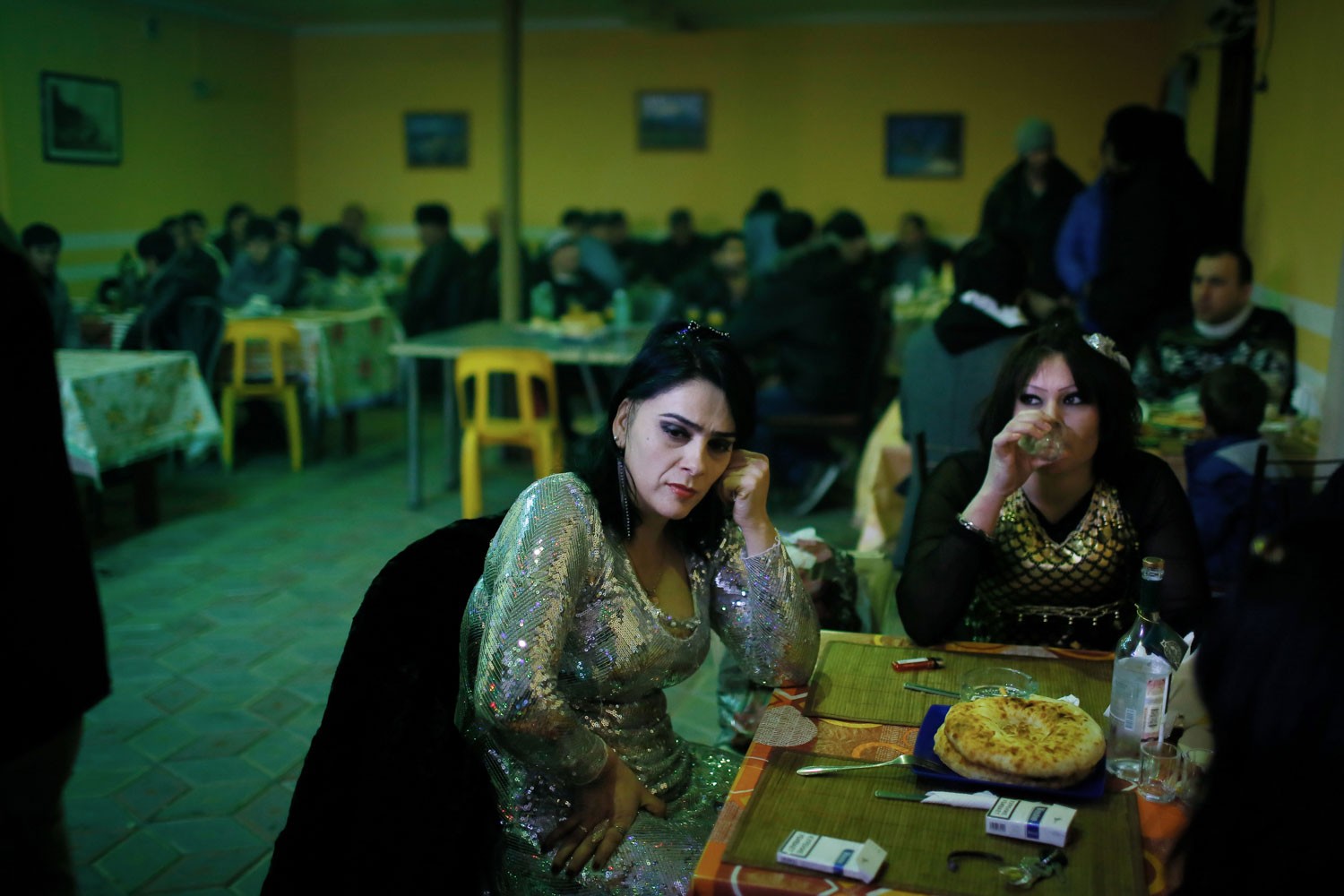
March 3, 2010. Oksana, Anna and Iryna from the Ukrainian Femen group are getting ready for their performance at a polling station.
There was no doubt that the ballots on the presidential elections would be counted as they should be, so Femen decided to perform: steal a ballot box and pass it to Putin. As in, do not bother falsifying the election, here, just keep this box all to yourself.
Backstage always allows for a deeper understanding of the meaning of things, it is also usually more interesting than the performance itself. I remember the discussions about political consultants, MPs and representatives of business being the puppeteers of Femen. And then it turned out they are eating regular street food, rented a room in the cheapest hostel, where in the hall men press buttons on the remote, switching the buttons from Channel One to NTV and back. They have no lawyer, no supporters, who would bring them packages to prison.
For this performance at the polling station where Putin had just voted the young women received from 5 to 12 days of jail time.
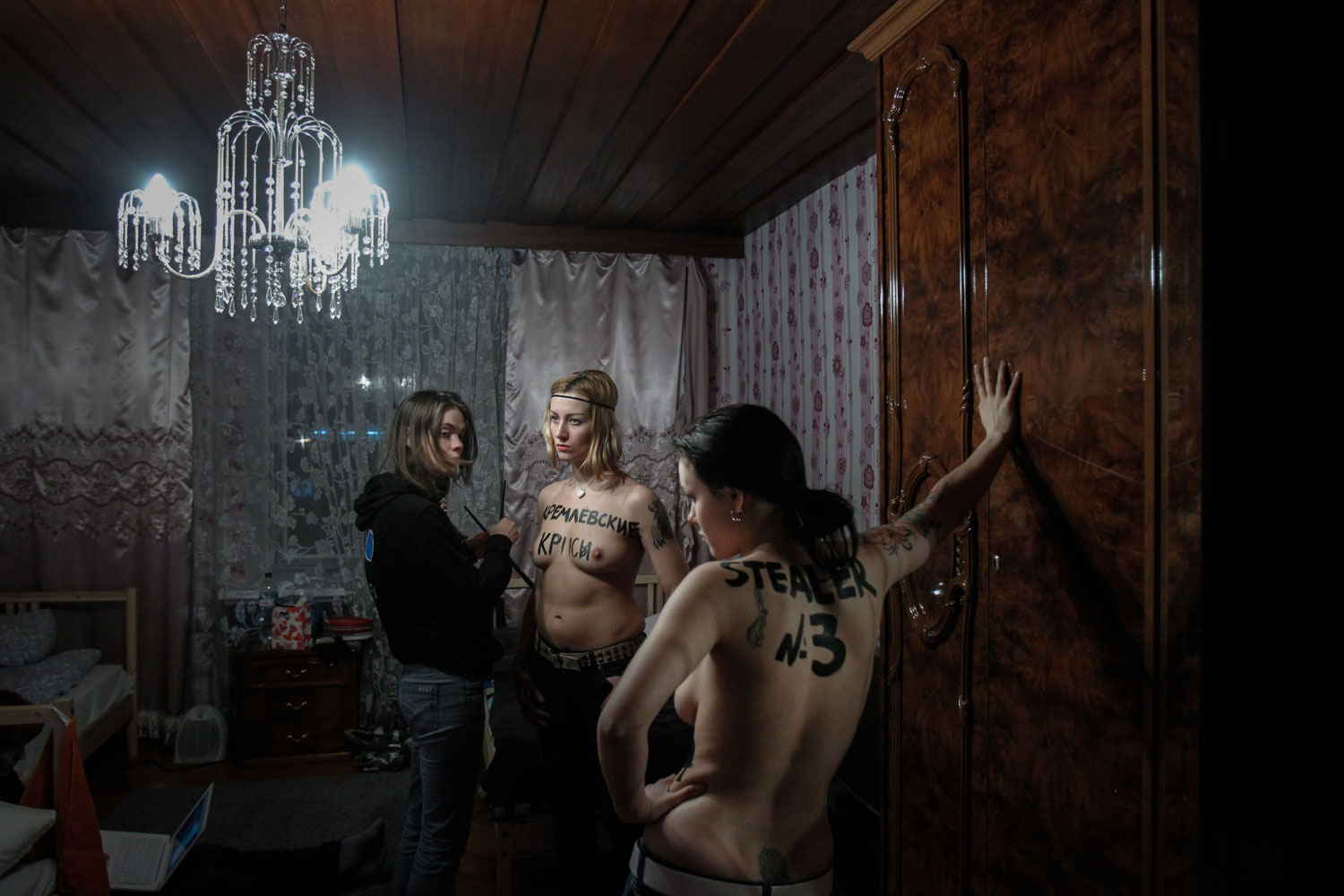
August 17, 2015. Chernobyl Zone.
Rosalia Ivanovna, a former teacher of Russian, Ukrainian and German languages, lives alone in a village whose population had been relocated. She is afraid of electricity after a friend of her’s died in a fire after a short circuit, so there is no light in her house. The walls of her hut are covered in the soot from the smoking furnace, but they have amazing painting on them, which are also all covered in soot though. On the furnace she is drying pears that had ripened and started to rot a bit. She receives no pension. She is ashamed of her teeth, so she covers her mouth when she talks. On her table you see Gorbachev’s biography, photographs of the Swallow’s Nest castle in Crimea and her poems, which she writes down on random pieces of paper. Her poems are about love, and she was never married.
Well, hello!
You came,
And outside
It started raining.
I looked
Into your eyes.
The lightning flashed,
and the spring bloomed.
Is it naive? Hell yes it is. But it was after I met her that I decided I would definitely start making documentaries.
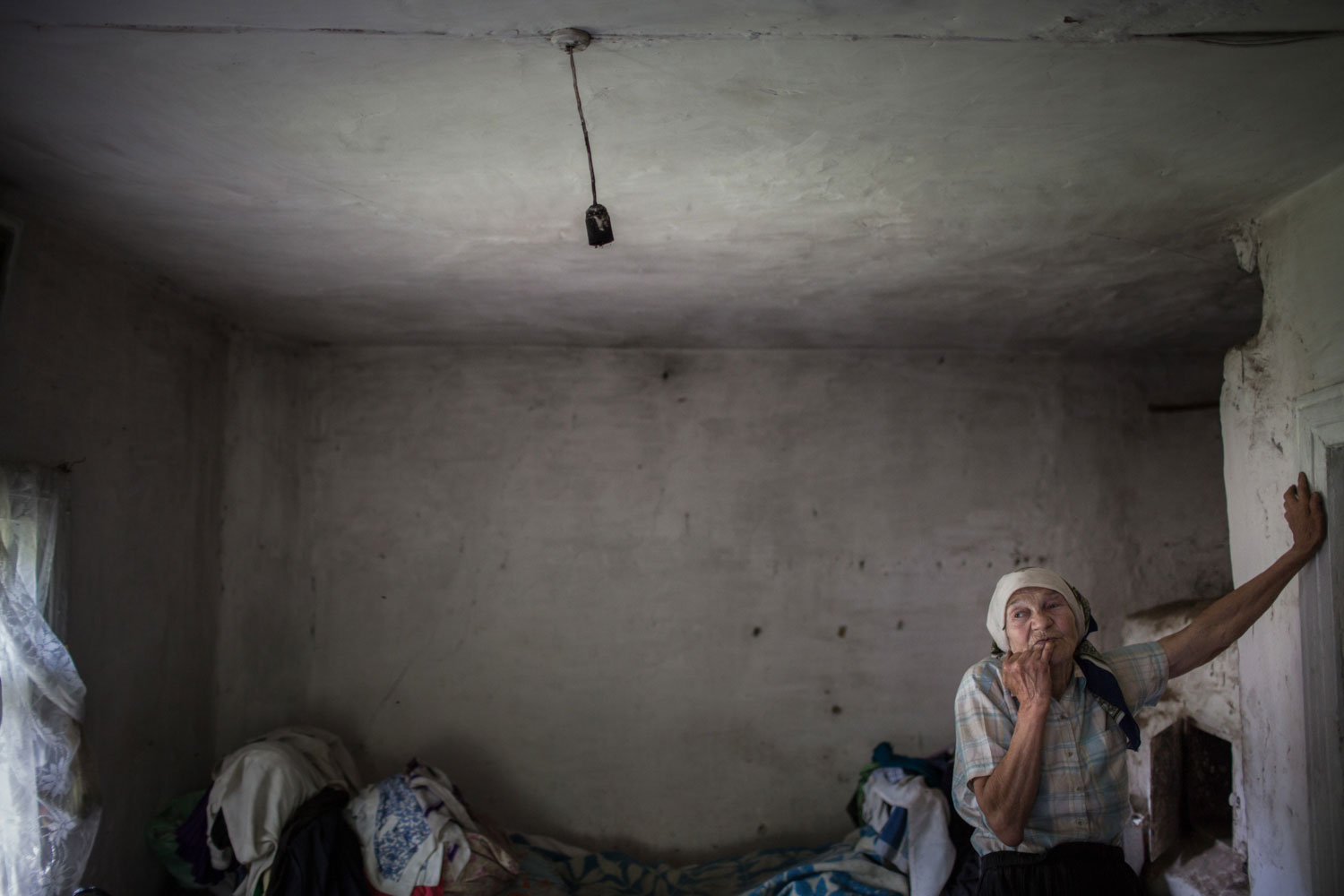
November 11, 2014. Moscow, Mikhail Gorbachev’s office.
Der Spiegel magazine asked me to make a portrait of Mikhail Sergeevich Gorbachev, and they warned me that after a course of medication his face has changed, and he no longer permits his picture to be taken. They added that they wanted to see him in the magazine anyway, and not looking like a sick old man. They were like, make it work.
If it was not enough that I think Gorbachev is a great person, and I always get shy in front of personalities of this scale, there was also this ‘make it work’ thing. The interview was scheduled in a boring expressionless white office. I brought lots of light, hoping to install it all, but
Mikhail Sergeevich said: “I now look like a bulldog in every picture, so you should not be shooting me.”
This was one of the most difficult shoots I had. I wanted to show Gorbachev the politician, and at the same time Gorbachev the husband. He always says himself that he had two true loves: Raisa Maksimovna and big politics.
For the whole interview I was just listening to what he was saying, and I did not shoot anything interesting. I was close to losing all hope, but at the end I talked him into showing me his office, because I knew this is where he kept the big portrait of his wife. I rushed in, he sat down for just a second. There was no thinking about the light!
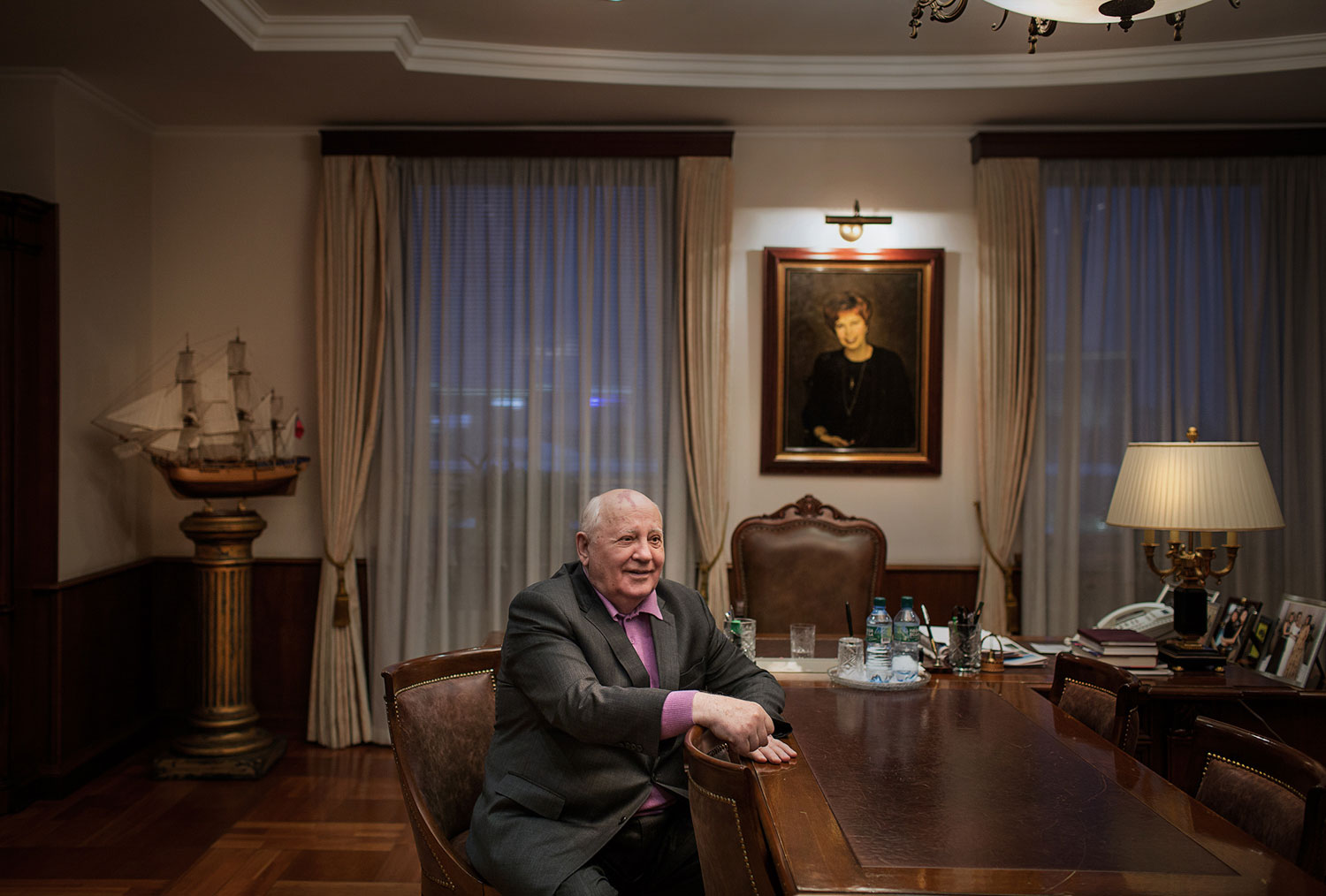
New and best
